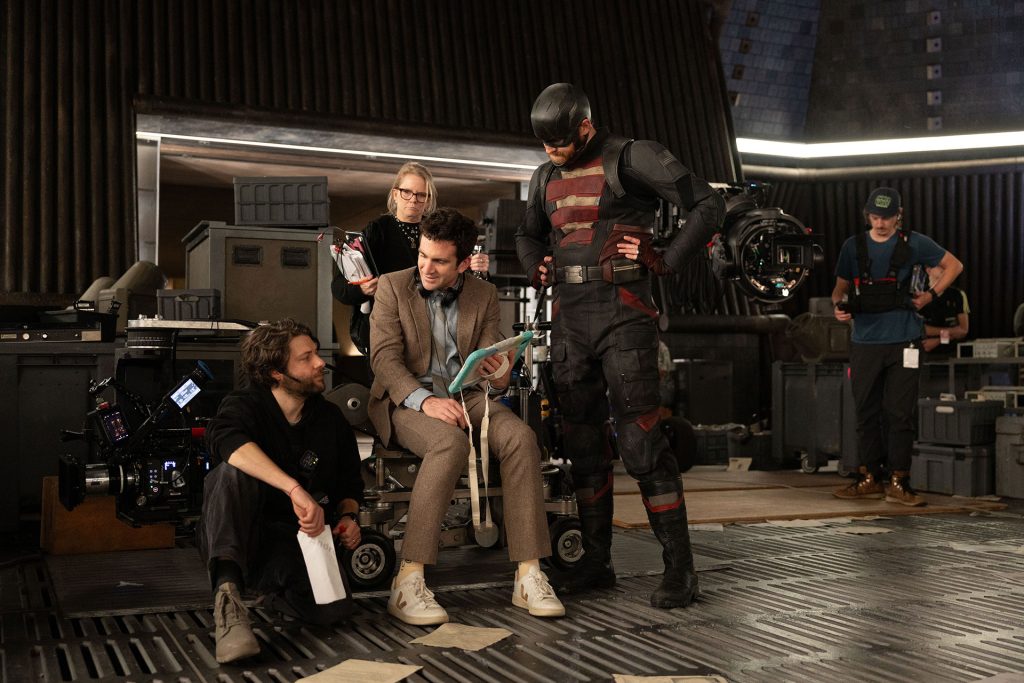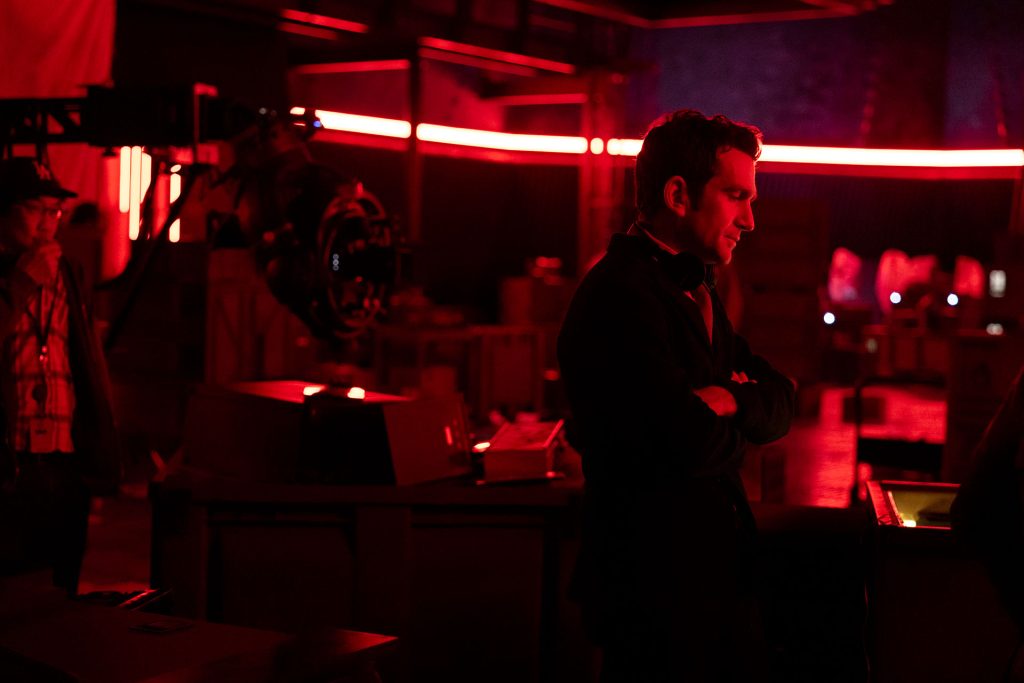Marvel Studios assembles an unconventional team of antiheroes — Yelena Belova, Bucky Barnes, Red Guardian, Ghost, Taskmaster, and John Walker — in Thunderbolts*, opening exclusively in movie theaters on Friday, May 2. The action-adventure is directed by Emmy® Award winner Jake Schreier and produced by Kevin Feige, the president of Marvel Studios.
Kicking off the summer box office season, the film stars Florence Pugh, Sebastian Stan, Wyatt Russell, Olga Kurylenko, Lewis Pullman, Geraldine Viswanathan, Chris Bauer, and Wendell Pierce, with David Harbour, with Hannah John-Kamen, and Julia Louis-Dreyfus.
In a Q&A, Schreier reveals what sets the Thunderbolts* team apart in the Marvel Cinematic Universe (MCU), shares the benefits of working in the Marvel Studios ecosystem — and much more.
What intrigued you most about directing an MCU film — and why Thunderbolts*?
I’m friends with Jon Watts [director of Spider-Man: Homecoming, Spider-Man: Far From Home, and Spider-Man: No Way Home] — who was my roommate in college — so I got an inside look at what it is to work in this world and to see what he pulled off.
Especially with this group of characters… because they’re not as familiar, there’s an opportunity there; there’s a little bit more freedom and a little less expectation. There is room to take [the story] in different places and do some different things with it.
The MCU is one of the strongest brands in entertainment. How did that help guide you as you were making Thunderbolts*?
The main thing is just Kevin guiding [us]. He’s so good at this… When you have a [studio] that has been so successful for so long, to still try new things and push things forward, there’s so much freedom in that encouragement. Kevin and [executive producer Louis D’Esposito] earned that. That trust really protects you. When you’re working with them, and you’re collaborating, there’s room to take chances and go places that seem interesting.

What differentiates the Thunderbolts* in the MCU, and how do the events of this film support storytelling in future films?
I think they’re sort of your least anticipated group of Marvel heroes [laughs]. But in that way, they’re like us. There’s something that everyone can relate to in all of these characters. They’re people who have found themselves in a place they didn’t expect to be, or maybe things didn’t work out for them quite in the way that they thought. I think anyone can relate, certainly. Then, the question is: What do you do from there? Where do you go? Do you retreat into yourself, or do you find connection in others and move forward through that?
How were you able to successfully balance the storylines of so many disparate characters into a cohesive, compelling narrative that also fits into the larger MCU?
It really starts with this incredible group of actors and how much they care not only about their work, but also about the characters that they’ve built and have come to care about and feel protective of. We obviously tried to build that into the script, but [it also came through] conversations with the actors when they showed up in early rehearsals talking about what felt honest to their characters, what they felt like could be adjusted, and what they could bring of themselves and their interpretation to make [things] feel more earned.
In your opinion, what makes someone a hero? Considering all the bad things they’ve done over the years, would any of the Thunderbolts even classify themselves as heroes?
It’s interesting. Other than Alexi [Harbour] — who is so invested in this meta idea of heroism, of being appreciated, and of the glory side of it — we didn’t talk so much about heroes and villains in this movie. We really tried to treat it more on a character level. It’s about being in a place and how you get out of it; in this world it’s really about saving yourself and saving each other. Yes, they’re saving the world. But it starts from an internal place, and that felt like a really rich thing to explore with actors of this caliber who can really bring that to life.

Each of these characters is coming into this film battling their own personal demons. How do their complex emotions color the story amid all the action and adventure?
When we’re stuck in our own thought loops and reflecting on our shame, there’s often a tendency to feel like we’re alone in that place, that no one else can understand it. While they all have their individual traumas and their different perspectives on how they feel, if they open themselves up to that connection, they [begin] see that there are others who can understand them, even if they haven’t gone through another’s specific experience.
Look, we want to have a lot of fun in this movie. There’s a ton of action. We’re in IMAX®, we’re blowing things up, cranes are falling, limos are exploding — but you never want that stuff to get ahead of where the characters are along the story. You want to feel like that action is coming from a story perspective and it’s all working together to build a narrative.